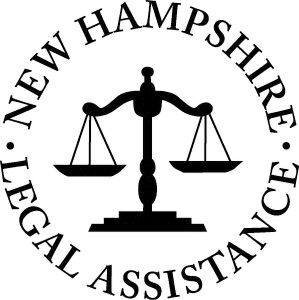Reasonable Accommodations for Persons with Disabilities in Housing: A Case Study
Under the Fair Housing Act, discrimination in the sale, rental, or financing of housing based on disability is illegal. Housing providers also must make reasonable accommodations to rules, policies, and procedures to allow a person with a disability equal opportunity to use and enjoy the home.
But when it comes to determining what constitutes a “reasonable accommodation,” there can be a difference of opinion. A 1993 case involving a Claremont apartment complex and a tenant with mental illness shows how a landlord disagreed with a tenant asking for accommodation.
The result was a federal court decision that says housing providers must make reasonable efforts to accommodate a tenant’s disability before refusing continued housing and evicting the tenant, even where the housing provider believes the tenant is a risk to the health and safety of other tenants.
Roe v. Sugar River Mills Associates
This case involved a federally subsidized housing complex in Claremont called Sugar River Mills, which housed about 130 tenants. A tenant, Roe, brought a case in federal court alleging he was threatened with eviction and the complex refused to make reasonable accommodations for his mental illness, considered a disability under the law. This, he argued, was a violation of provisions in the Fair Housing Act.
The threat of eviction stemmed from an incident between Roe and another tenant. The other tenant alleged that Roe threatened him with physical violence, using obscene, offensive, and threatening language. This and other behavior by Roe made him fearful for his physical safety, gave him great anxiety, and led directly to his seeking housing elsewhere. After this confrontation, Roe was convicted of disorderly conduct.
Roe disputed that his actions were threatening and claimed his outbursts were caused by his mental disability. Therefore, Roe argued, Sugar River Mills was required to explore reasonable accommodations that could eliminate or sufficiently minimize the impact of his disability on the other tenants and allow him to remain as a tenant.
What Is an Accommodation?
An accommodation is a change in a rule, policy, or procedure that would allow a person with a disability to fully use and enjoy the dwelling or to remain in the dwelling. This could include allowing an assistance animal in an apartment that doesn’t allow pets, or in this case, an accommodation that would allow Roe to stay while also lessening the impact of his mental disability on others.
The apartment complex argued that regardless of Roe’s disabilities, he posed “a direct threat to the health or safety of other individuals” living at Sugar River Mills and was not entitled to the accommodations or protections under the Fair Housing Act.
When Is Accommodation Required?
At the heart of the case is the question of when a housing provider has a legal requirement to provide an accommodation for a person with disabilities. Based on an exemption contained in the Fair Housing Act (FHA), Sugar River Mills argued that if a person is a threat to others, then the provisions of the FHA requiring accommodations do not apply.
The U.S. District Court of New Hampshire found, in denying a request for summary judgment, that Sugar River Mills had to make reasonable efforts to accommodate Roe’s disability before evicting him and explore whether any reasonable accommodation would enable him to live peaceably and safely among other tenants.
Landlords have an affirmative duty to reasonably accommodate tenants with disabilities, even for behavior that may be a threat to the health or safety of other residents. Landlords must “demonstrate that no reasonable accommodation will eliminate or acceptably minimize the risk” posed to other tenants before seeking eviction.
Questions About Fair Housing and Reasonable Accommodations?
Although this case illustrates the requirement that housing providers explore possible accommodations in good faith, not all accommodations are considered “reasonable” under the Fair Housing Act provisions. If you have a disability and have questions about an accommodation request, contact NHLA’s Fair Housing Project at 1-800-921-1115. We’re here to help.

